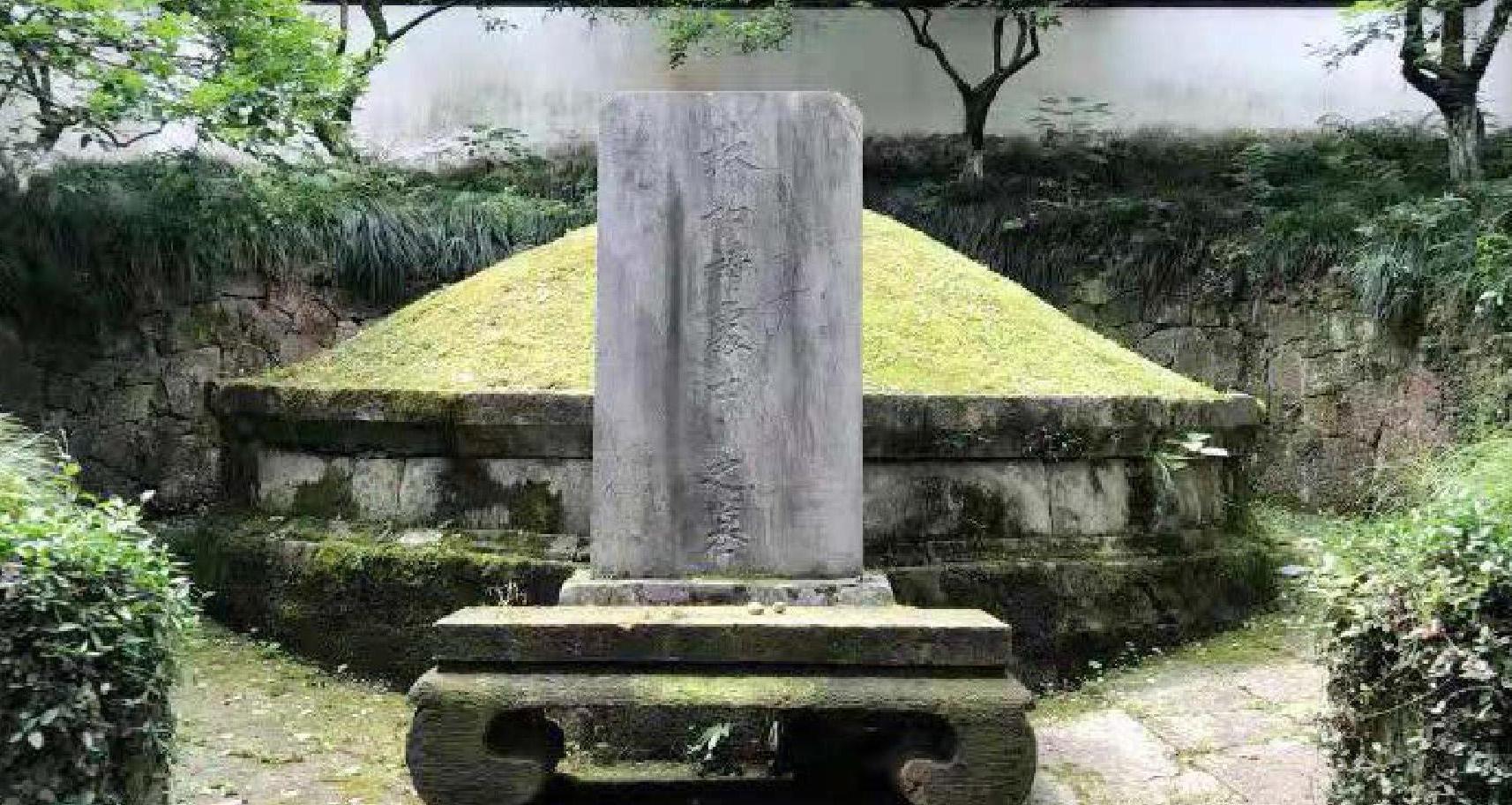范仲淹与林和靖的故事
2021-07-29司马一民
司马一民

宋仁宗皇祐元年(1049年)正月,范仲淹由鄧州知州移任杭州知州,这一年他已经六十一岁了。他去西湖孤山拜祭以“梅妻鹤子”著称于士林的林和靖(林逋),此时林和靖也已作古二十一年。在林和靖的墓前伫立良久,范仲淹自然而然会想起曾经两度拜访林和靖的情形。
天圣四年(1026年)春,范仲淹在兴化知县任上有一次两浙之行,在杭州,他特地和朋友一起去孤山拜访林和靖,那是他们第一次见面,他有《和沈书记同访林处士》一诗纪事:
山中宰相下崖扃,静接游人笑傲行。
碧嶂浅深骄晚翠,白云舒卷看春晴。
烟潭共爱鱼方乐,樵爨谁欺雁不鸣。
莫道隐君同德少,樽前长揖圣贤清。
“崖扃”本指山门,诗里指林和靖孤山的住处。“樵爨”,打柴烧饭的人。“山中宰相”,是典故。梁朝陶弘景,有才,谢绝为官,梁武帝每遇大事就去陶弘景隐居的茅山求教。陶弘景虽然不是在朝的宰相,又像宰相那样给梁武帝出主意,只不过住在山里,这就是“山中宰相”的典故。诗歌里说“山中宰相”,当然指林和靖,可见他们谈论了天下大势,而且范仲淹对林和靖的“世事洞明”非常钦佩,不然就不会用“山中宰相”的典故。
这首诗的大意为:有大智慧的林和靖在孤山过着悠然自得的生活,西湖的山水与人和谐共处,连砍柴做饭的山民在这里也都过得很快乐,我也想追随林和靖过这样逍遥的日子。
过了几天,范仲淹又去孤山拜访林和靖,这一次又约了几个朋友,结果天有不测风云,一场大雨使他们不得不取消行程,怏怏不乐的范仲淹写了一首题为《与人约访林处士阻雨因寄》的诗寄给林和靖表达失落感:
闲约诸公扣隐扃,江天风雨忽飘零。
方怜春满王孙草,可忍云遮处士星。
蕙帐未容登末席,兰舟无赖寄前汀。
湖山早晚逢晴齐,重待寻仙入翠屏。
读上面两首诗,我们可以明显地看出范仲淹与林和靖论道意犹未尽的意思。两年以后,天圣六年(1028年)秋,已被晏殊推荐为秘阁校理的范仲淹再一次去孤山拜访林和靖。为什么范仲淹这么想和林和靖见面?范仲淹是个入世极深的官员,当然不是为了清谈,这从此后他多次上书议论时事,可以得到印证。
此次见面林和靖也有诗《送范寺丞》赠范仲淹:
林中萧寂款吾庐,
犹欣接绪馀。
去棹看当辨江树,
离尊聊为摘园蔬。
马卿才大常能赋,
梅福官卑数上书。
黼座垂精正求治,
何时条对召公车。
因天圣二年(1024年)范仲淹曾迁大理寺丞,故林和靖称范仲淹为范寺丞。
“马卿才大常能赋”,指的是汉武帝与司马相如的典故,汉武帝有一天在宫中读到司马相如的《子虚赋》,感叹奇才,下诏让在四川的司马相如进京为官。李白曾有诗“汉家天子驰驷马,赤车蜀道迎相如”以记。“梅福官卑数上书”的典故出于《汉书》,说梅福很有才华,却不被汉成帝刘骜重用,辞官居家,屡次上书朝廷议论朝政,不被采纳。
这首诗的大意为,在秋天树叶凋落的季节,又一次与范仲淹相见。你的才能可与司马相如相比,不会像梅福那样得不到重用。
这既是林和靖对范仲淹的评价,又是对范仲淹的鼓励。
林和靖虽然比范仲淹年长二十多岁,可两个人一见如故,这个“故”,我以为就是“家国情怀”,也就是范仲淹在《岳阳楼记》中写的“先天下之忧而忧,后天下之乐而乐”。我们读范仲淹的这首《寄赠林逋处士》,是不是也可以看出,林和靖隐士不隐,虽处江湖之远,却心系天下,只不过不愿为官罢了:
唐虞重逸人,束帛降何频。
风俗因君厚,文章至老淳。
玉田耕小隐,金阙梦高真。
罢钓轮生蠹,慵冠鉴积尘。
饵莲攀鹤顶,歌雪扣琴身。
墨妙青囊秘,丹灵绿发新。
岭霞明四望,岩笋入诸邻。
几侄簪裾盛,诸生礼乐循。
朝迁唯鹗,乡党不伤麟。
吊古夫差国,怀贤伍相津。
剧谈来剑侠,腾啸骇山神。
有客瞻冥翼,无端预绅。
未能忘帝力,犹待补天均。
早晚功名外,孤云可得亲。
范仲淹此诗的大意为,当今是像唐尧和虞舜那样的太平盛世,您这位高人虽然一直隐逸,也一定会得到朝廷的重用。很多人只顾追名逐利,你却忘却功名而隐逸,如同俗世中的一股清流。又读了你最近的文章,感觉越来越淳厚有味。
事实上林和靖隐逸孤山之前曾经多年行走江浙一带,结交过很多人,即便后来隐逸孤山,也经常有为官的文人探访,可以说他对世道人心洞若观火,不然,范仲淹也不会对他敬重有加。
(作者系杭州市政协智库专家、杭州文史专家。)
In 1049, Fang Zhongyan (989-1052), already 61 years old, assumed office as the prefect of Hangzhou, after serving as the prefect of Dengzhou (in Henan province) for more than three years. Standing in front of the tomb of Lin Bu on the Solitary Hill at the northwestern corner of West Lake, Fan would undoubtedly reminisce about his two visits to Lin Bu years ago.
Born in the year 967, Lin Bu, also known as Lin Hejing, had already been dead for some 21 years by then. One of the most famous poets in Northern Song, Lin spent much of his later life in recluse near the West Lake—paradoxically, he is also one of the most famed hermits not only in Northern Song, but throughout the Chinese history. Staying single for his entire life, he was particularly fond of planting plum trees and raising cranes, therefore is best known for “taking plum trees as his wives and cranes as his sons”.
The first time that Fan paid a call on Lin was in the spring of 1026, when, serving as the magistrate of Xinghua county in neighboring Jiangsu, Fan was on a trip to Zhejiang with his friends. In one of his poems, Fan wrote: “By the gate, the chancellor on the hill lives. He looks at the raucous travelers undisturbed.…Say not those who admired you are far and few between, I for one will happily follow your footsteps with wine cups in my hand.”
“Chancellor on the hill” is in fact a reference to Tao Hongjing (456-536), a recluse like Lin who lived on Maoshan Mountain in Jiangsu during the Southern Liang dynasty (502-557). While not an official with any title, Tao was frequently sought after for advice by Emperor Wu of Liang (464-549), the founder of Southern Liang. Similar to Tao, Lin Bu was also consulted regularly on matters of national significance. Hence the epithet “chancellor on the hill”. Indeed, before living in recluse in the Solitary Hill, Lin travelled widely around Jiangsu and Zhejiang, making friends and establishing an extensive network of connections. Since Lin was still regularly visited by scholar-officials even during his hermitage, he had a good grasp of the latest political developments.
A few days after this visit, Fan went again to Lins place with his friends. Unfortunately, they were thwarted by sudden torrential rains. An unhappy Fan Zhongyan wrote in another poem: “Inviting my friends to call on Mr. Lin, I didnt expect heavy winds and rains…. When the sun shines on the lake and the hill, I will seek out the legend amid green trees.”
Evidently, Fan longed to have more time with Lin, and was far from contented with only one visit. True to his words, two years later, during the autumn of 1028, Fan paid Lin another visit at the Solitary Hill. At the time, Fan had already been promoted, in charge of collating books and documents at the imperial library. After the visit, Lin penned a poem specially for Fan, comparing his talents to Sima Xiangru (c. 179-118 BC), a Western Han (202 BC-9 AD) poet who was highly regarded by the Emperor Wu of Han (156-87 BC).
Why was Fan so keen to meet up with Lin? As Fan was deeply involved in Song politics, he was apparently not there for chitchat. And why was Lin, a hermit, willing to embrace Fan enthusiastically? In spite of the age difference—Lin was over 20 years older than Fan, they hit it off right away from the very beginning. The most important reason, I believe, is they cared deeply about the country, that is, “Be the first to bear the worlds hardship, and the last to enjoy its comfort,” as Fans most widely known saying goes. For Lin, he was a hermit more in the physical sense, reluctant to be bound by official positions, but ready to contribute his share at any time if it could help improve the country.
